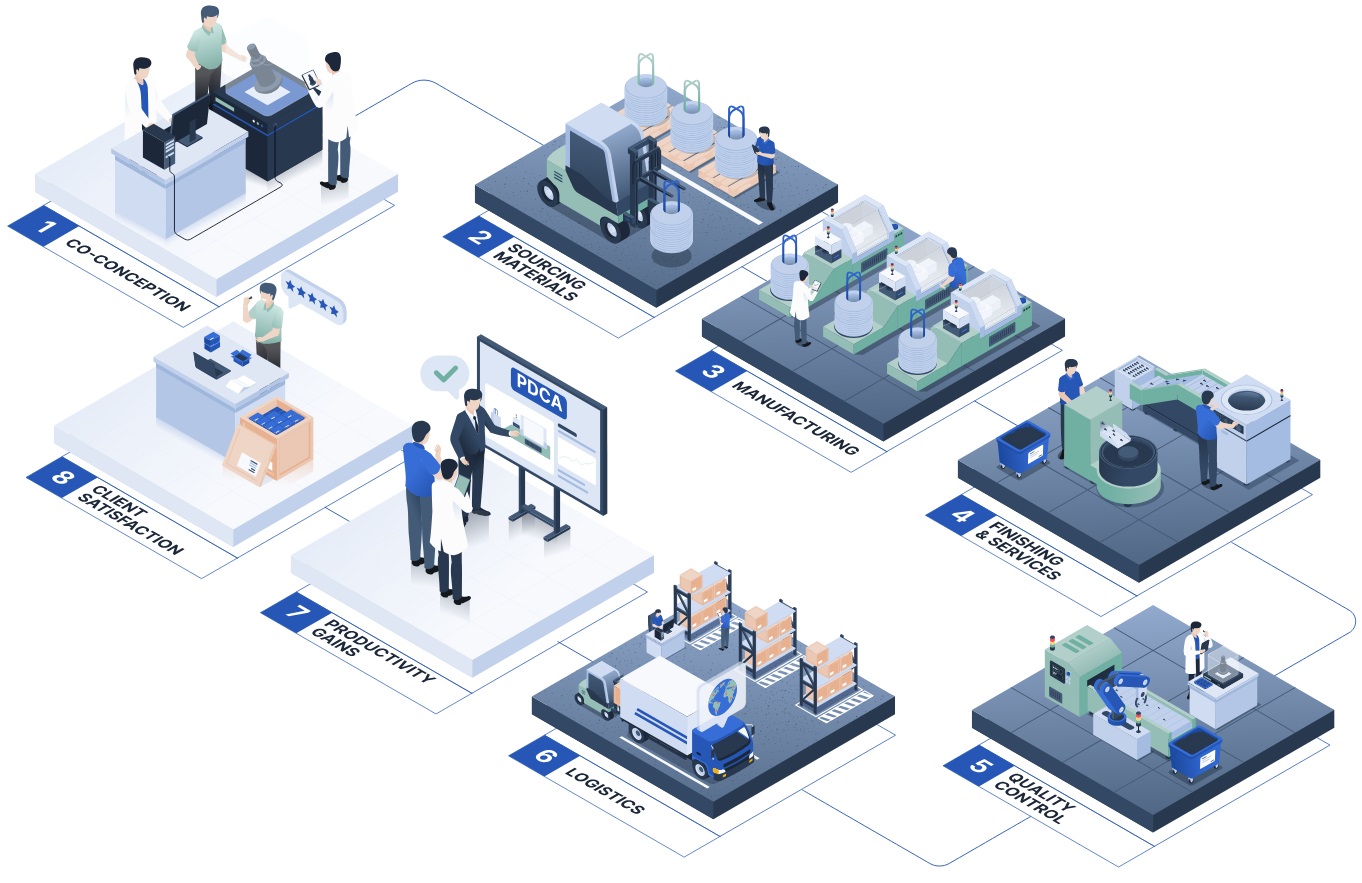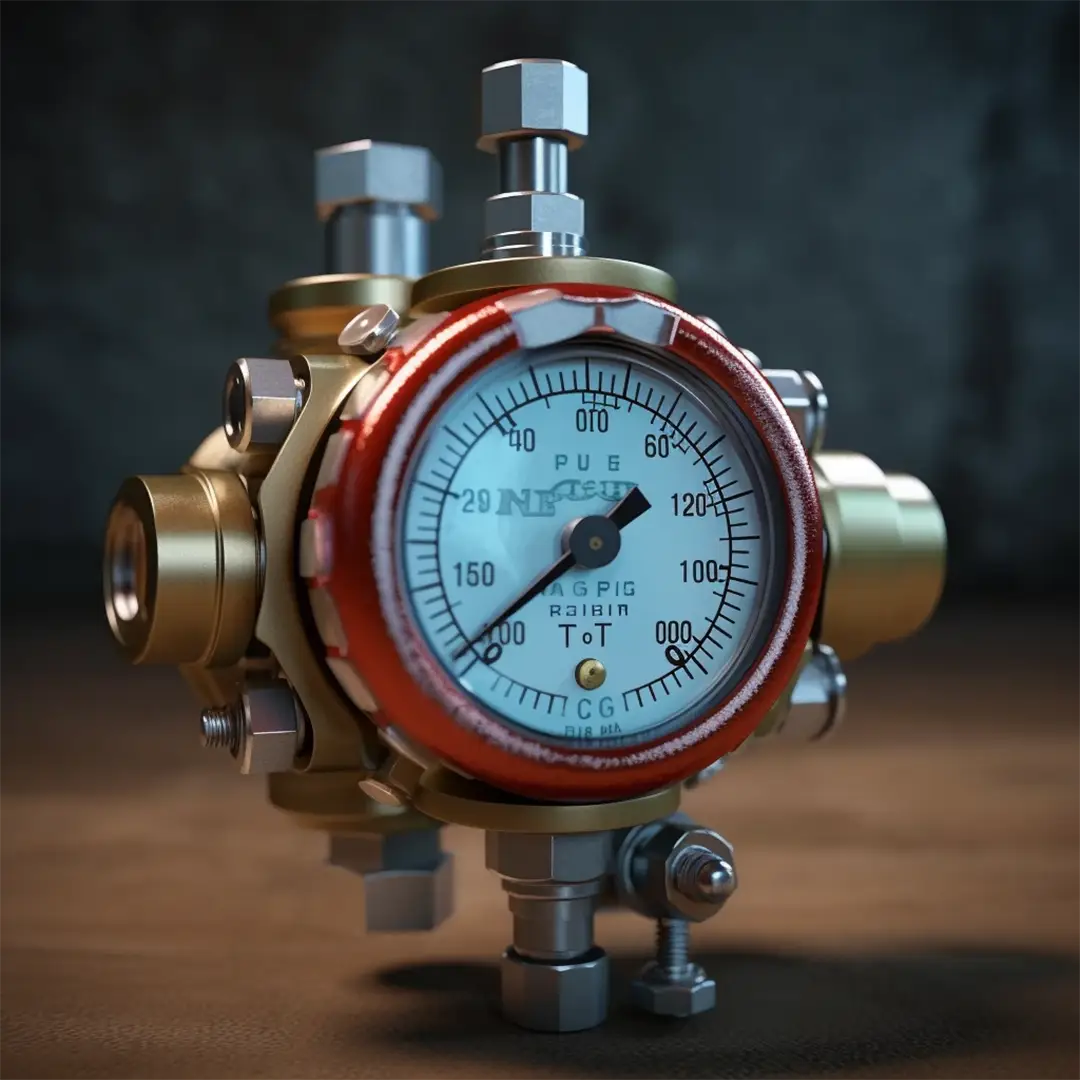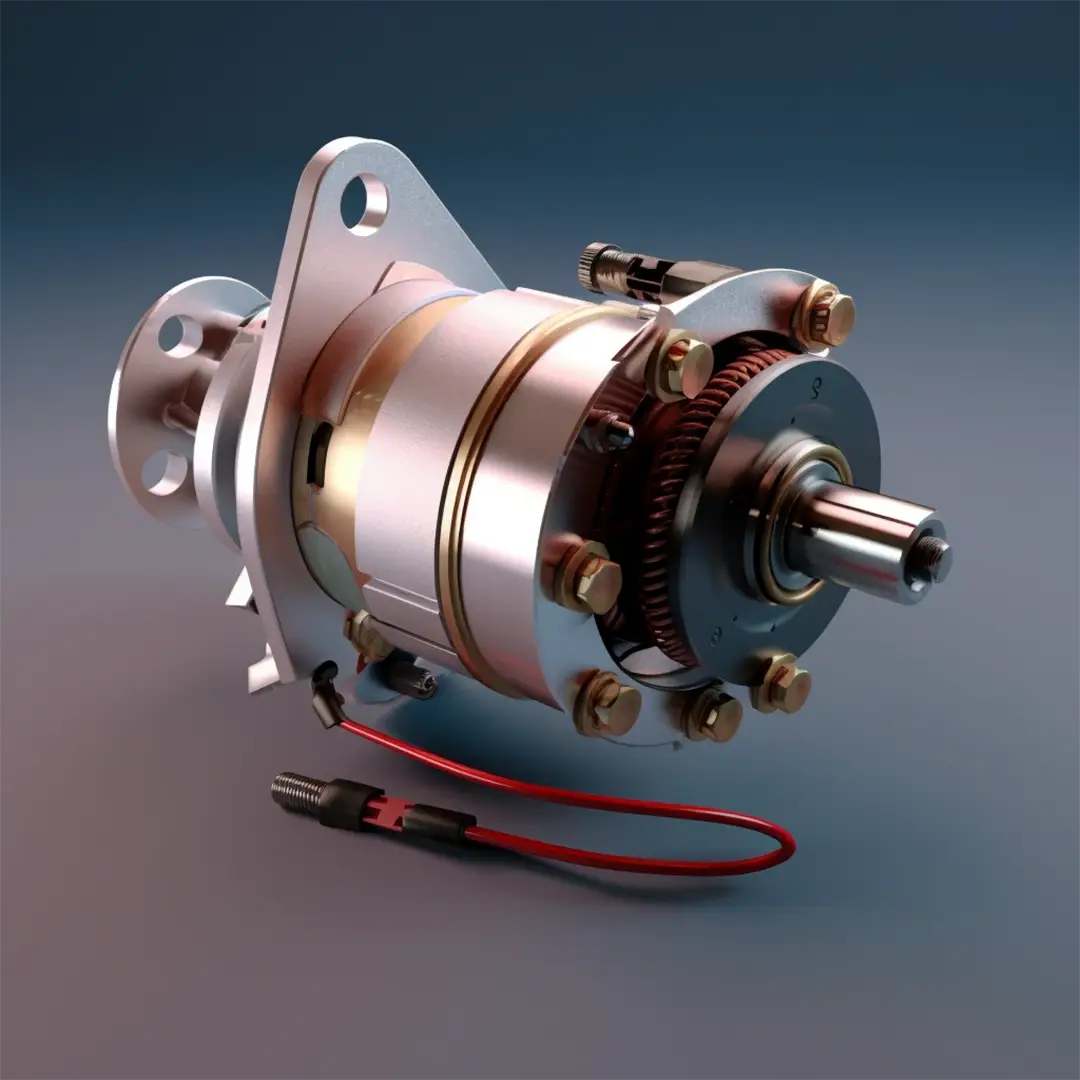2, rue de la Ternière
Avrille Cedex FRANCE
- 35 million sockets designed per year
- Co-designer of custom fasteners for 100 years and manufacturer of standard products
- From M2.5 to M20 and from 6 mm to 22 mm
- Steel, stainless steel, brass, etc. (other materials are available on request).
This socket eliminates any risk of plastic deformation and facilitates the process of overmoulding or post-moulding in any type of plastic. They serve as compression limiters in industrial fields such as the automotive industry.
Threaded socket - threaded spacer





Threaded socket - threaded spacer







- Feasibility control using the FMEA tool, which is used to analyze failure modes, their effects and their criticality.

- Manufacture of initial samples in medium series, and validation of production with PPAP according to the IATF 16949 standard.

- Development of detailed production processes according to the APQP quality process

- Collection and analysis of production data to identify trends and variations. 3PPM in 2023.
The advantages of LGC Industries manufacturing


.png)

.png)


- 24 Multi-spindle lathes
- 45 Spins Escomatic
- 42 Fluting machines
- 8 Plunge and thread grinding machines
Learn more about the technical characteristics of our products
Discover other products
The threaded socket: the perfect compromise between a self-tapping threaded insert and a spacer
One threaded socket or threaded spacer is a fastener that has an external thread as well as a smooth interior, designed to connect securely with other components.
Threaded sockets are essential components in the automotive industry and other industrial fields.
They offer a robust and reliable attachment thanks to their external thread, while allowing to limit compression and friction efforts thanks to their smooth interior.
Whether it is to assemble mechanical parts, engines or suspension systems, threaded sockets play a key role in ensuring the quality and durability of automotive assemblies.
Their precise design and smooth operation make them essential elements for professionals in the industry, mainly in the automotive industry.
How are LGC threaded sockets made?
There are two different methods for creating a threaded socket
From the material to the threaded socket
The beginning of the threaded socket manufacturing process is similar to that of threaded inserts classics.
The first step in manufacturing a threaded socket is to thread the spool of raw material externally.
This stage is called rolling because the socket is passed between 3 rollers and the rolling system cold deforms the part by compressing it in order to create the thread. Cold deformation has the advantage of strengthening the elastic resistance of the material.
Thus, a threaded socket made of rolled material will have better pull-out resistance than a rolled material.
The second step is to cut the raw material tube in a suitable machine. The tube is cut to the desired length.
It is possible to add chamfers or finishes to the material.
Then, the part goes through a grinding stage.
A roller presses the parts against a grinding wheel rotating at high speed.
It is thanks to the abrasion of the grinding wheel that the diameter of the part is modified to reach tolerances of a few microns (~5-6 μm).
What are the advantages of a threaded socket?
- Ease of assembly: the threaded sockets are renowned for their ease of assembly. Their simplified design allows for quick and efficient installation, reducing the time needed to complete a project.
- Reduced friction: thanks to their smooth internal surface, these threaded sockets minimize friction within the assembly. This is particularly beneficial to avoid premature component wear and to ensure consistent performance over time.
- Precise fit: threaded sockets provide a precise fit between assembled elements. This dimensional accuracy is crucial in applications where every millimeter counts to ensure optimal functioning.
- Material Versatility: Smooth threaded sockets are compatible with a variety of materials, providing essential versatility. Whether for metal, plastic or composite assemblies, they can easily be adapted to different contexts.
- Reduced maintenance costs: by minimizing friction and providing high corrosion resistance, smooth threaded sockets contribute to lower maintenance costs. Fewer parts subject to wear and tear mean longer overall life.
Would you like to know more about our threaded sockets?
Go to our dedicated article: Everything you need to know about LGC sockets






















